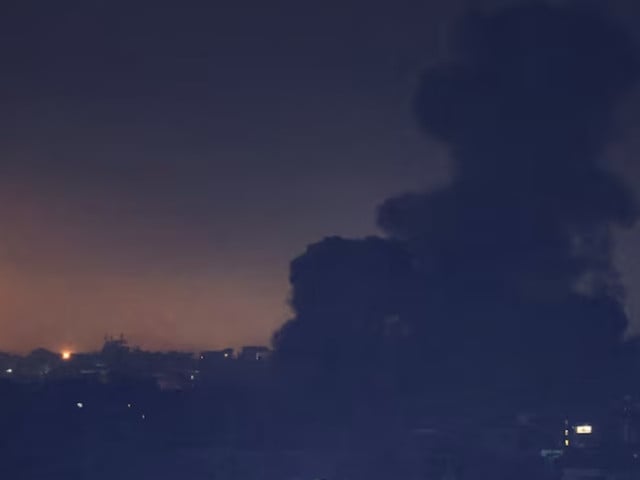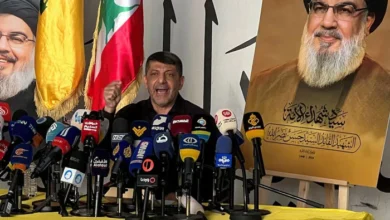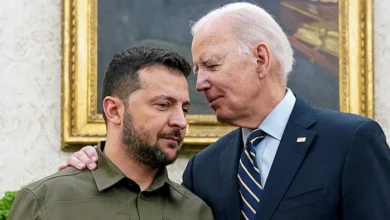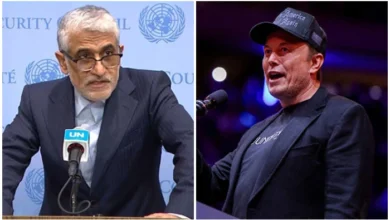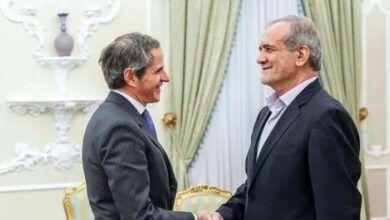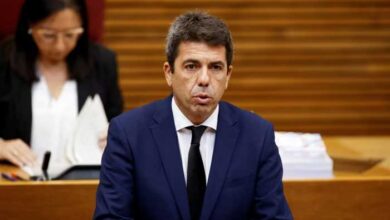Hezbollah has retracted earlier comments suggesting potential support for a ceasefire in its conflict with Israel, with the militant group vowing to continue its rocket attacks.
In a speech by acting leader Sheikh Naim Qassem, Hezbollah initially backed efforts led by Lebanese Parliament Speaker Nabih Berri to reach a truce, but the group later clarified it would not cease operations unless Israel halts its offensive in Gaza.
The reversal comes amid escalating violence along the Lebanese-Israeli border, where Hezbollah has been launching rocket barrages since October 2023 in support of Hamas’ fight against Israel.
Despite weeks of intense Israeli airstrikes and ground invasions into southern Lebanon, Hezbollah claims its military capabilities remain intact and insists it will maintain pressure on Israel.
In response to reports suggesting the group was open to a ceasefire in Lebanon, Hezbollah issued a statement affirming its ongoing support for Hamas and the Palestinians, rejecting the notion of a unilateral truce without addressing the broader conflict in Gaza.
This latest development follows Israel’s announcement that its forces have killed several senior Hezbollah commanders and dismantled significant militant infrastructure along the border.
Israeli Prime Minister Benjamin Netanyahu declared that Hezbollah is “weaker than it has been for many years,” though Hezbollah disputes this, asserting its resistance will continue.
The group claims that its military capabilities remain strong, despite sustained Israeli airstrikes and the deaths of key Hezbollah commanders, including its long-time leader Hassan Nasrallah.
Israel, having launched a ground invasion into southern Lebanon, stated it has dismantled significant Hezbollah infrastructure and killed hundreds of militants, though no independent source can confirm these battlefield claims.
Israel’s Prime Minister Benjamin Netanyahu described Hezbollah as being “weaker than it has been for many years,” following a series of airstrikes that targeted senior commanders within the group.
Israeli military spokesmen confirmed that they had taken control of strategic Hezbollah positions along the border.
This latest round of hostilities began after a surprise strike on Israel on October 7, 2023, prompting Hezbollah to join the fight with Hamas by targeting Israel from Lebanon’s southern border.
Hezbollah and Hamas share a common ally in Iran, which has played a significant role in supporting both groups financially and militarily.
Meanwhile, the war has had devastating consequences on Lebanon, with over 1,300 people killed and more than a million displaced since fighting escalated in mid-September.
Lebanese cities, particularly in the south and the Hezbollah stronghold in Beirut’s southern suburbs, have been severely damaged by Israeli air attacks.
On the Israeli side, most of the rockets fired by Hezbollah have been intercepted, though sporadic damage has been reported.
In Washington, discussions between Israeli Defense Minister Yoav Gallant and US Defense Secretary Lloyd Austin were postponed as the Biden administration reiterated its opposition to Israeli strikes on Iranian nuclear facilities, a move seen as potentially expanding the conflict.
As the fighting continues on both the Lebanese and Gaza fronts, efforts toward a ceasefire remain uncertain. Diplomats suggest that while Hezbollah may be under internal and external pressure to shift its stance, the group has yet to indicate any serious intent to de-escalate without significant concessions from Israel.
The prospect of an immediate ceasefire remains elusive, with the Israeli military focusing on military objectives in both Lebanon and Gaza.
Hezbollah’s stance remains resolute in linking the conflict in Lebanon with the war in Gaza.
While expressing nominal support for political solutions, Qassem reaffirmed the group’s commitment to stand by Hamas and Palestinian fighters, signaling a protracted conflict despite growing diplomatic efforts to de-escalate the situation.

